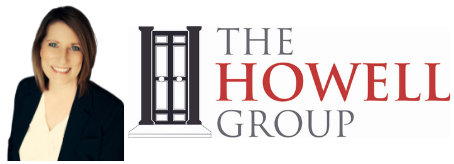
If you’re looking to buy or sell your first home you may have a lot of questions. As the process goes on, you may find yourself having more questions about the words used in real estate! Your realtor will explain all of the real estate jargon to you throughout the process, but it’s always good to have a list you can refer to.
In this post we will cover some real estate vocabulary so you know exactly what’s going on. Here are some real estate words for you to read through so you can get familiar with the words used during your buying and selling process:
Common Real Estate Vocabulary Words
Escrow – An account where all earnest money and closing costs are deposited while the lender approves the deal. Escrow is a third party that will maintain the money and documents until a closing is final.
Lien – This is the amount that the owner of the home, or the seller, owes on their mortgage. Lenders expect the mortgage to be paid off before the property is sold. If a seller still owes on their mortgage, then the first party paid is the lender.
Equity – The percentage of your home that you own. Your home equity can increase when the property value increases and/or as the mortgage loan is paid off.
Contingent – The finalization of a closing can be contingent on certain terms from the buyer once an offer has been accepted by the seller. This means that even though a seller has accepted an offer, the buyer may back out of a sale if the contingency isn’t met. Usually a buyer will add a contingency to their offer that concerns the home inspection, appraisal, mortgage approval, or if their current home sells. If contingencies are not met, then the buyers can back out. Note that offers with contingencies are not as strong as offers without contingencies for this reason.
Commission – Sellers pay for the commission of the real estate agents and the commissions are usually split between the buyer and seller agents.
Market Value – The highest price that a property is expected to price in order to be fair under current market conditions. Market value takes comparables in mind when determining a value for a home.
Comparable – Another house that is similar to the build year, bedroom and bathroom amount, and property size that is in the local area. Recent sales of similar properties in nearby areas to help determine the market value of a property. Real estate agents may also refer to them as ‘comps’.
Comparative Market Analysis (CMA) – A study of how comparable homes in the area have sold in order to properly price a home. Usually homes in the same neighborhood, size, and build year are used for Comparative Market Analysis.
Underwriting – The process of a loan application to determine the risk involved for the lender. Basically the underwriting will allow the lender to decide if they should approve you for a mortgage loan.
Depreciation – A decline in the value of a house over time due to wear and tear on the property. Depreciation only accounts towards the house itself, not the land.
Appreciation – An incline in the value of property over time. Home values tend to increase over time. Appreciation can occur due to market conditions, neighborhood, appeal, and local amenities. A home appreciation is based on the market value and comparable houses in the neighborhood.
Title – The bundle of rights for a property which is handed to the buyer from the Title company. This can also include the deed as a document for ownership.
Title Documents – The title company will send buyers the title insurance to the property they are purchasing. These documents need to be reviewed for correct information. Read this blog on what to know during the closing on a home for more information on when the title documents need to be collected and who handles it.
Title Insurance – This protects the buyer and the lender on the chance that the seller did not have a clear title when they sold the property.
Certificate of Title – A document that ensure the property is legally owned by the person. The certificate of title will also contain mortgage information. This document is state issued. A deed is different as it transfers ownership of a property.
Earnest Money – A deposit amount from the potential buyer that is sent in with an offer to the seller as a sign of good faith or to show they are serious buyers. Earnest money will be deposited upon acceptance of the offer. This amount is usually 1-2% of the asking price of a home.
Inspection – Usually a home inspection, which is an examination of the house’s condition. A home inspection is performed by a professional and the buyer pays for this. Click here for a post on what to look for in a home inspection before buying. This post contains more information on the home inspection process including when it is performed and how long it may take. Be aware that other inspections made by professionals for specific categories such as a fireplace inspection or roof inspection may be needed if suggested by the home inspection report.
Offer – A contract or agreement sent to the seller from the buyer in order to purchase real estate. The first offer may not be accepted, so any changes to the offer will need to be presented by a counter offer.
Counter Offer – A contract or agreement that has had changes made to it by either the buyer and/or the seller in order to purchase real estate. There can be numerous counter offers until the seller accepts or rejects the offer.
Survey – A map or drawing of the boundaries of a property. A survey may be required if a buyer requires the precise measurements of the land, for example, if they wish to build a fence.
Appraisal – The estimated value of the property. This is performed by an appraiser during the closing process of a home in order to determine if the house is worth the selling price. Some mortgages will not lend a buyer more than the house is appraised for.
Closing Costs – Fees paid on the day of closing by the buyer and/or seller as stated in the contract. Closing costs cover lender expenses, taxes, and insurance. The closing cost amount is usually around 6% of the cost of the home.
Down Payment – This amount is sent on the closing day. The amount is determined by the loan, but will usually be between 3.5 – 20% of the amount of the home.
Due Diligence – Actions that buyers should handle in order to protect the real estate property. These actions include inspecting the house and property thoroughly, reviewing other sales prices in the neighborhood, find out the zoning requirements, and also checking liability insurance.
HOA (Homeowners Association) – An organization that determines community and/or neighborhood rules and standards. Monthly or yearly HOA fees will apply.
Home Warranty – Includes basic coverage for items in the home, such as plumbing, heating, electrical, and sometimes even major appliances. The home warranty is paid for up front and is usually for a year period.
Homeowners Insurance – The amount due by the homeowner to cover property and liability insurance for the property.
Property Tax – This is the amount of money that the owner of the property is required to pay based on the property’s assessed value. Property taxes are usually due yearly.
Prequalification – Buyers need to go through this process to determine if they are qualified for a loan. The amount stated is approximate.
Preapproved – Preapproval takes place after prequalification. Buyers submit required documents to their lender, who will then approve the buyers for a specific amount. The lender will also give the buyer interest rate amounts. Being preapproved makes your offer to sellers stronger.
Conventional Loan – A long term loan with fixed monthly payments for the duration of the entire loan. A conventional loan is normally set for a 30 year period with fixed interest rates.
Fixed-Rate Loan – A loan where the interest rate never changes during the entire duration of the loan.
Construction Loan – A short-term loan for financing the cost of construction.
Annual Percentage Rate (APR) – The cost of a mortgage as a yearly rate that includes all financing costs, interest, mortgage insurance, and the loan origination fee.
Adjustable Rate Mortgage (ARM) – A loan where the interest rate is adjusted periodically to current interest rates.
PMI (Private Mortgage Insurance) – As a buyer, you may need PMI if you put down less than 20% on a home using a conventional loan. Then, once the equity in your house hits 20% your PMI can be removed, which will lower your mostly mortgage payment.
Ready to Jump into the Real Estate Market?
Good Job!
Whew! That was a lot, but now you are well on your way to understating the words used in the real estate world. Your realtor will be impressed with your real estate lingo!
Of course, there are more vocabulary words that you will hear, especially when dealing with mortgages, but you will have a more solid foundation so you know what is going on because of the vocabulary words you learned in this post!
If you have any questions about buying or selling a home or any other real estate terminology that we didn’t cover in this post, feel free to reach out! I love helping with all of your real estate needs.
If you’re new to the Birmingham area and have any questions, please feel free to reach out to Dianna Howell with The Howell Group: 205-568-5435 or dianna.howell@kw.com for information on Pelham, Alabama real estate by Dianna Howell, top real agent in the Birmingham, Alabama area. Visit our website for more information on the Birmingham area: https://diannahowellrealtor.com/category/lifestyle/
Sincerely,
Dianna Howell
The Howell Group of Keller Williams in the Birmingham Alabama area
Top Birmingham Real Estate Agent


